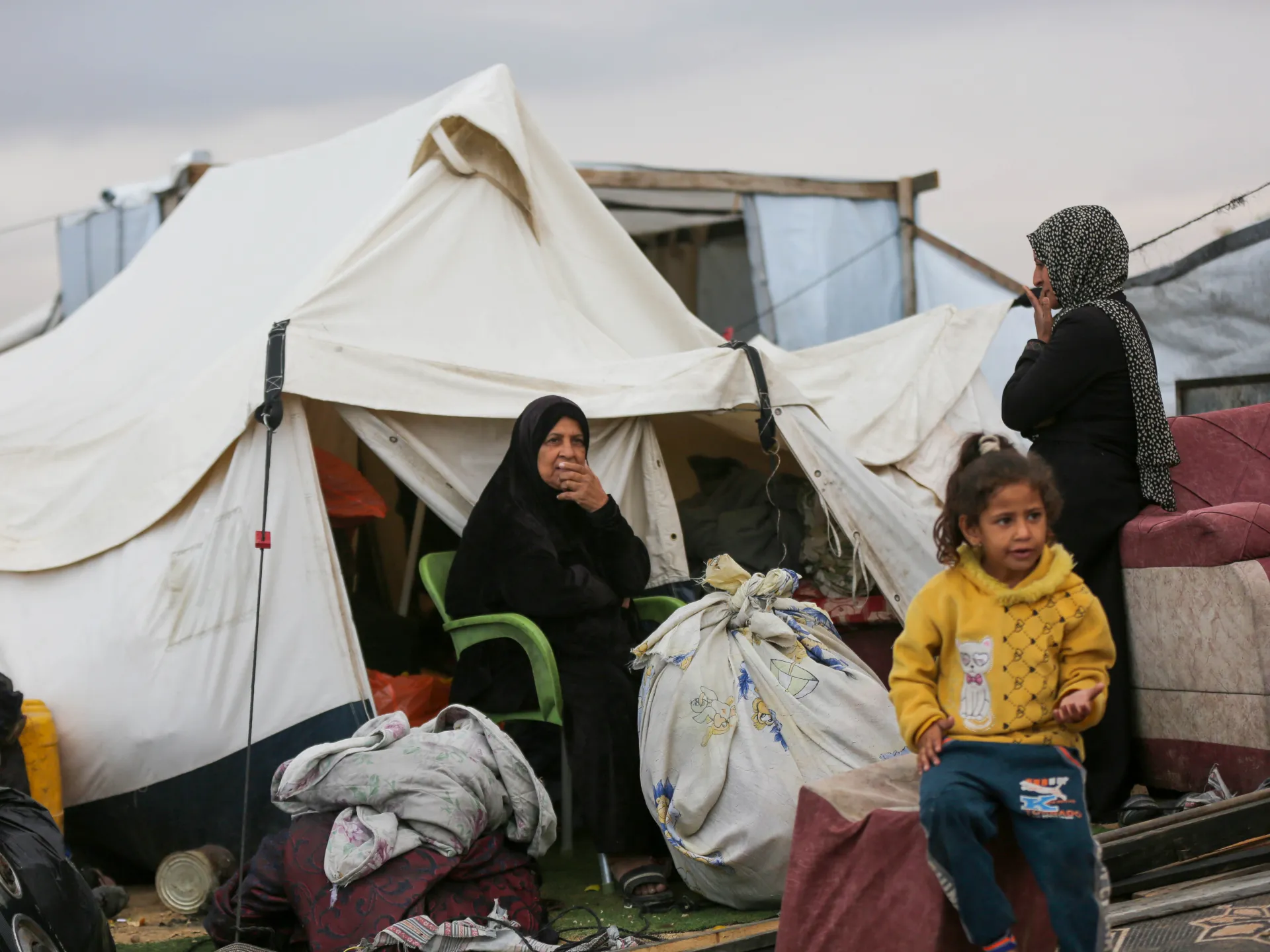The Israeli military has killed at least three Palestinians in Gaza, as the coastal enclave reeled from heavy rains flooding shoddy makeshift tents housing thousands who have been denied adequate shelter owing to Israel’s continued throttling of aid supplies.
A source at Nasser Medical Complex told Al Jazeera on Sunday that three people had been killed after Israel bombed east of Khan Younis in southern Gaza. That same day, Israel also struck Gaza City’s Zeitoun neighbourhood and areas close to the southern city of Rafah.
Recommended Stories
list of 3 itemsend of list
Reporting from Gaza City, Al Jazeera’s Ibrahim al-Khalili said the Israeli army was still targeting locations inside the so-called yellow line, which demarcates where troops have withdrawn as part of the ceasefire.
Al-Khalili said the situation was “going from bad to worse” for families living near the yellow line, as the military continued to “demolish residential buildings” and “spread panic” while they contended with heavy rains flooding makeshift shelters.
The United Nations agency for Palestinian refugees (UNRWA) said that 13,000 families in Gaza whose homes were destroyed during two years of indiscriminate Israeli bombardment are now exposed to freezing temperatures and flooding in woefully inadequate shelters.
UN data shows that more than 80 percent of all buildings and housing units in Gaza have been damaged or destroyed since the start of the war. But Israel continues to block the entry of tents and mobile homes into the enclave despite the ceasefire, which was meant to unleash a flow of aid to stricken residents.
Tamara Alrifai, UNRWA’s director of communications, said Israel had placed limitations on what could enter the enclave, banning certain items deemed to be of dual use that could potentially be used for military purposes. “Israel … would take out many items that are extremely needed, especially in this winter situation,” she said.
“UNRWA is under double the amount of scrutiny and restrictions than other agencies despite being the largest agency there,” Alrifai said, adding that the UN agency has enough supplies to fill 6,000 aid trucks from its warehouses in Egypt and Jordan.
‘Submerged’
Reporting from Gaza City, Al Jazeera’s Hani Mahmoud said: “It’s been raining for two days and people are telling us that everything has started to leak. Many of these displacement camps are at a different elevation to surrounding areas, allowing water to run in from all sides. Some areas are completely submerged.”
“For people sheltering inside bombed-out buildings, everything is leaking, and there is a risk that with the heavy rains, the buildings could collapse. People who set up tents near the coast are at risk of strong tides washing away their tents,” he said.
Abdulrahman Asaliyah, a displaced Palestinian in the city, told Al Jazeera: “All the tents have been flooded, people’s mattresses, their food, their water, their clothes. Everything has been soaked. We are calling for help for new tents that can at least protect people from the winter cold.”
Caroline Seguin, Gaza emergency coordinator at Doctors Without Borders (known by its French acronym, MSF), said that many people were awakened by the floods and were afraid to go back to sleep. “In Gaza, it is a luxury to spend the night in a dry place,” she told Al Jazeera.
Seguin said Israel was still putting up barriers to much-needed aid entering the enclave. Bringing in supplies, including tents and medication, was still “very complicated”, she said, requiring “even more administrative processes” from the Israeli side.
Netanyahu unsure about truce duration
Since the start of the ceasefire agreement last month, at least 266 people have been killed and 635 wounded by Israeli attacks, adding to a grim toll now approaching 70,000 deaths.
Prime Minister Benjamin Netanyahu told his cabinet on Sunday that he did not know how long the Gaza ceasefire would hold, adding that Israel was still expecting the remains of three captives to be returned by Hamas.
Hamas’s military wing, the Qassam Brigades, has been undertaking efforts with the Red Cross to locate the remains of captives under mountains of rubble left behind by Israeli bombardment.
Netanyahu also said that his opposition to a Palestinian state had “not changed one bit”, one day before the UN Security Council votes on a United States-drafted resolution mentioning a “credible pathway” to Palestinian statehood that would mandate an international stabilisation force in Gaza.
Meanwhile, Israeli violence in the occupied West Bank continued unabated, with raids on two camps that left two young Palestinians dead.
Soldiers shot Jadallah Jihad Jumaa Jadallah, a 15-year-old ninth-grade student, as they raided the Far’a camp, located south of the city of Tubas in the West Bank, preventing paramedics from assisting him, according to Palestinian news agency Wafa.
Separately, the military also killed Hassan Sharkasi during a raid on the Askar refugee camp east of Nablus, according to the Palestinian Red Crescent.
